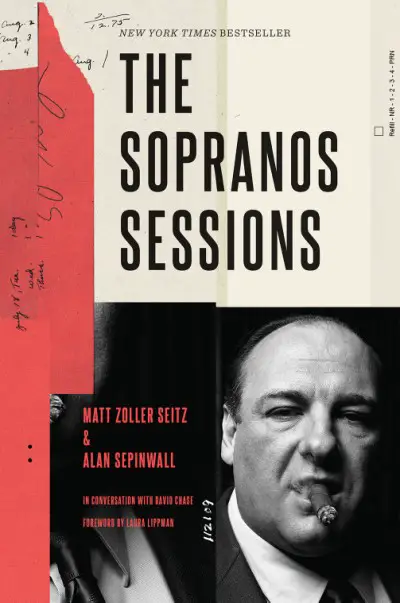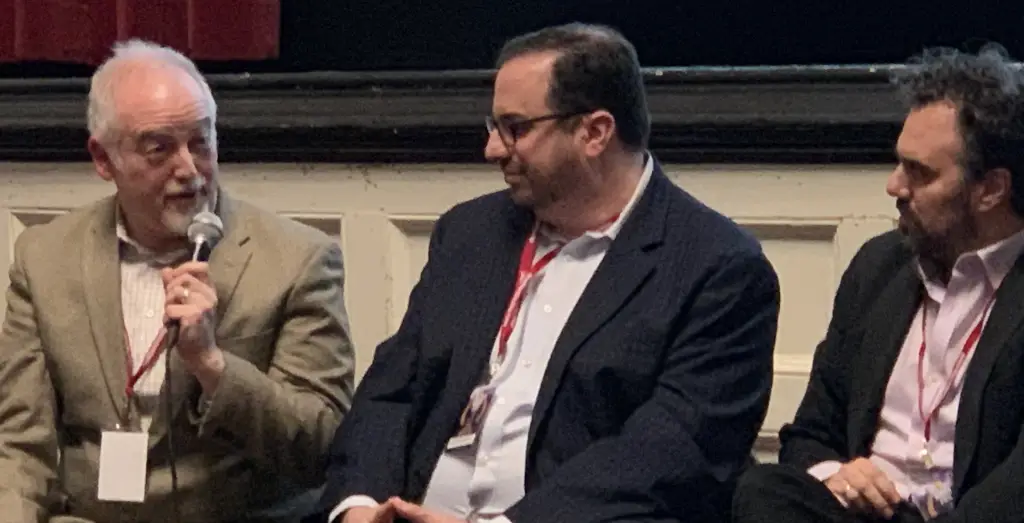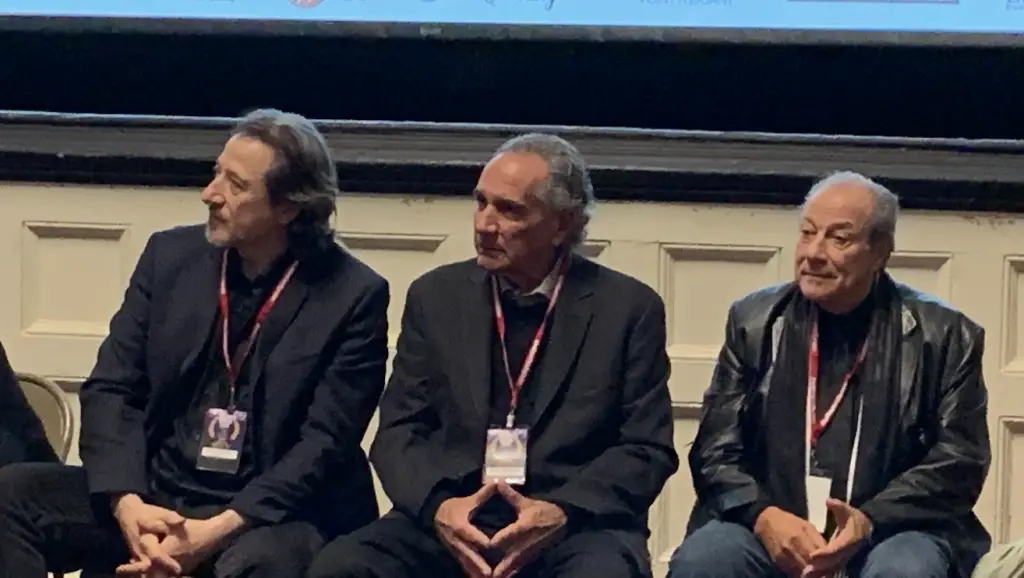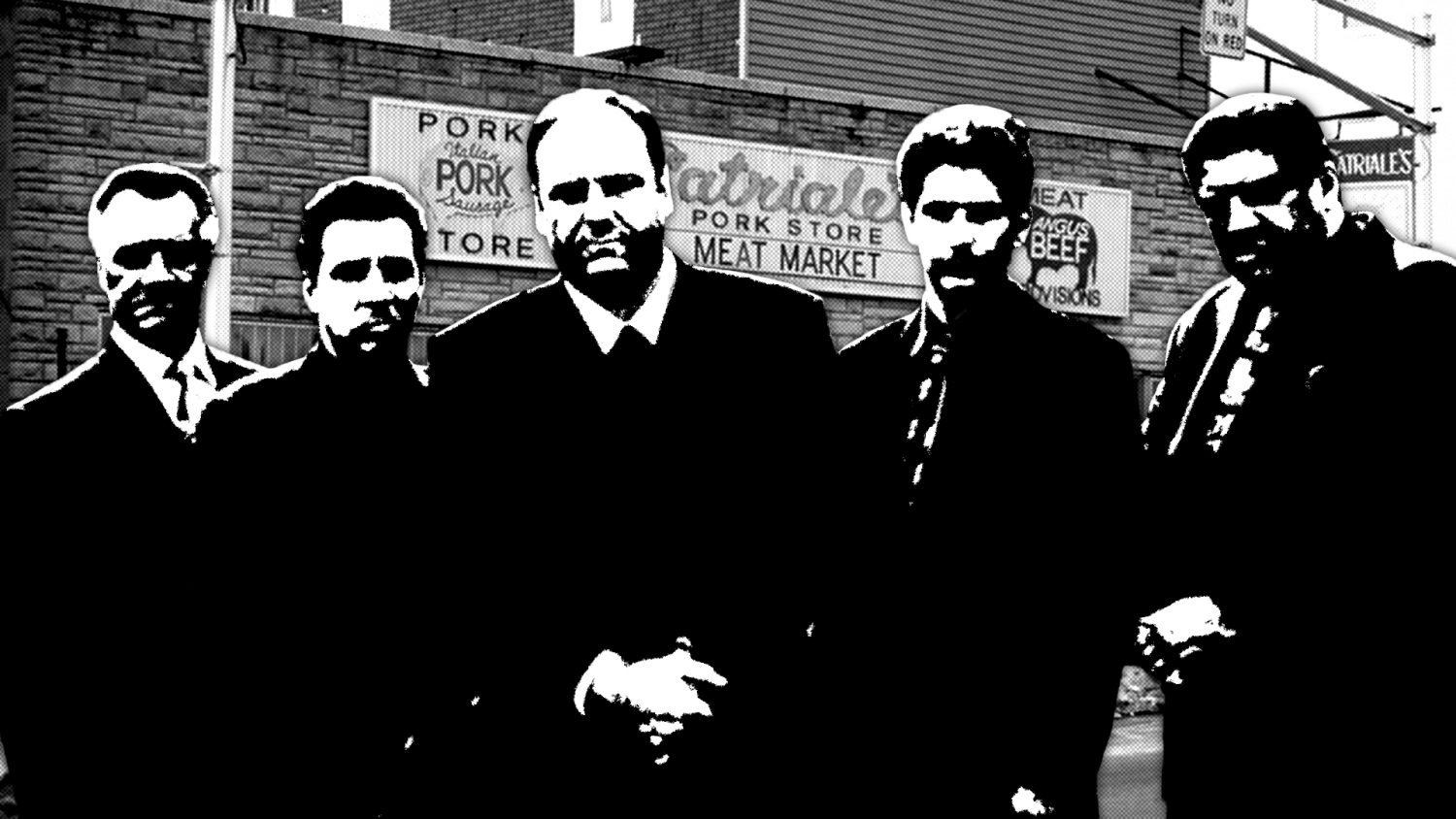Like few pop culture phenomena of another era, The Sopranos is having a moment in 2019, in conjunction with its 20th anniversary.
HBO, back in January, ran a marathon of the entire series on all of its channels. The first-ever Sopranos Film Festival was held, in New York, also that month, along with a comprehensive book about the series called The Sopranos Sessions. The two authors of that book, one of whom organized the festival, are also the stars of a new documentary. And there’s even a Sopranos prequel movie in the works.
The Sopranos Today
The Sopranos, was ran from 1999 through 2007, seemed specifically of its time – i.e., the Clinton era turning into the Bush era, the 9/11 attacks, and the various forgotten anxieties from around the turn of the Millennium. But in a funny way, the show’s very anachronisms, starting with the way it made the New Jersey mob way more powerful than it actually was at that time, make it oddly timeless.
During a recent rewatch, that kept occurring to me. There’s very little in the show’s writing that doesn’t hold up. The funny lines are still funny, the individual characters are still amazing creations, and I’ll often find myself rewinding and rewatching individual scenes.
The funny lines are still funny, the individual characters are still amazing creations, and I’ll often find myself rewinding and rewatching individual scenes.
There are a few factors that make The Sopranos especially poignant while watching it today. One is that James Gandolfini, who played Tony Soprano, is no longer with us, having passed away in 2013.
Another is, obviously, the sad reality that American politics has been taken over by a certain tough-guy, New York/New Jersey ethos – one very much prone to all the worst aspects of masculinity, not to mention malapropisms – that’s very familiar to any Sopranos watcher. I’ve long believed that, whatever connections he had with mobsters in his construction days, Donald Trump and his cronies have long been more heavily influenced by fictional depictions of the Mafia than by the actual, real-life Mafia.

There are also echoes of The Sopranos even in the daily headlines that don’t have anything to do with our president.
Perhaps my biggest pet peeve during The Sopranos‘ run was that a lot of fans completely misunderstood the show, believed Tony Soprano was a cool dude who was worth rooting for, and got really angry whenever an episode went by without anyone getting whacked. If they only knew that, when reputed Gambino crime boss Frank Cali was gunned down last month, it was the first murder of a New York mob boss in over 30 years.
…biggest pet peeve during The Sopranos‘ run was that a lot of fans completely misunderstood the show, believed Tony Soprano was a cool dude who was worth rooting for…
There were also reminders about The Sopranos in the films of 2018 – two of my least favorite, in fact. Tony “Lip” Vallelonga, the character Viggo Mortensen played in Green Book, actually appeared on The Sopranos as an actor, playing elderly mob boss Carmine Lupertazzi. And somehow, Tony Lip’s off-screen son turned out to be an even bigger idiot than Little Carmine, even if he is a more successful movie producer.
And there was also the infamous movie Gotti, about the late New York mob boss, that learned every single wrong lesson from The Sopranos. While the final season Sopranos episode featured the sad death of Johnny Sack in a prison hospital, Gotti for some reason treated it as cool and badass that John Gotti died in prison.
Another reason why The Sopranos still resonates? It’s really easy to watch it. When the show was first on, viewers had to wait until Sunday night for new episodes to roll around. A few years later, fans would drop $70 for a single season DVD set. Now, every episode of every season of The Sopranos, as well as most other HBO shows, is available to stream, via HBO Go or HBO Now, for about $10 a month.
The Paper At the End of Tony’s Driveway
The two men who changed the world of film criticism were certainly in the right place at the right time: On the TV desk of the Newark Star Ledger, at the very time that The Sopranos, a series set nearby, happened to debut on HBO.
Alan Sepinwall and Matt Zoller Seitz were both TV critics for that newspaper, the same one that Tony Soprano picks up from his driveway in the first episodes of most seasons of the series.
The Sopranos Sessions…features in-depth pieces about every single episode of the show, which draw on the original reviews while adding plenty of new material.
The two men both wrote about the series for the newspaper, and eventually, the critics began posting online review/essays of each episode. While they didn’t invent this – sites like Television Without Pity had been doing such reviews for awhile – Sepinwall and Seitz gave in-depth reviews too on an episode-by-episode basis, opening them up to very smart discussions in the comments. (Disclosure: I’ve been online acquaintances of both men for many years, and Seitz once edited a piece of mine at RogerEbert.com.)
The two critics, who continued to write about the series until it ended, have now authored a book, The Sopranos Sessions, which is an absolute must for anyone who cares about The Sopranos even a little bit. The book features in-depth pieces about every single episode of the show, which draw on the original reviews while adding plenty of new material. There is also a series of interviews with series creator David Chase, as well as some old articles from the early days, and obituaries for James Gandolfini.
Greetings From Asbury Park

I had felt bad about missing the Sopranos Film Festival in January, so I was sure to attend an event the two authors had at the Garden State Film Festival, which was held last Wednesday night in Asbury Park – near where the fish told Tony in Big Pussy’s voice that he was working with the government.
The Garden State Film Festival, being held for the 16th year, was a celebration of all things cinema and Jersey, and it’s almost certainly the only film festival that has given an award to Brian O’Halloran, the actor who played Dante in Kevin Smith’s Clerks.
Opening night was a showing of My Dinner With Alan, an hour-long documentary that featured nothing but Sepinwall and Seitz talking about the show, their experiences covering it, and their long friendship. The entire conversation takes place at Holsten’s, the New Jersey ice cream parlor that was the setting for the controversial final scene of the series.
…My Dinner With Alan, an hour-long documentary that featured nothing but Sepinwall and Seitz talking about the show, their experiences covering it, and their long friendship.
The doc, directed by Kristian Fraga, is a charmingly low-fi effort, I did notice a couple of continuity errors involving Sepinwall’s sandwich, but palpable throughout is the friendship and mutual admiration of the two men. It brings to mind Siskel and Ebert, or Wilbon and Kornheiser- there’s something about a couple of old newsroom hands talking to one another that I’ll never get sick of watching. My Dinner With Alan is being shopped to streaming services, Sepinwall said.
After the film there was a Q&A featuring the two critics, plus the director, the cinematographer, and three Sopranos actors: Federico Castelluccio (Furio), Dan Grimaldi (Patsy Parisi), and Bert Gervasi (Artie Pasquale). The biggest shock of the night? Castelluccio, even though he was born in Italy, does not speak with Furio’s accent.

They told stories from the set and from the all-cast feasts that often followed. Also, only at the Garden State Film Festival would the audience Q&A include someone listing the names of a bunch of long-ago mobsters and asking the panel if they knew them (Pasquale, because he’s from Essex County, had.)
The Finale Question
The most controversial question about The Sopranos, one hashed out in considerable length in the book, the documentary, and on the panel, is the one about the finale: Did Tony Soprano die, or not?
I have something of an untraditional view: It doesn’t matter. At the moment that the final episode of The Sopranos faded to black, Tony Soprano ceased to exist as a fictional character, and if David Chase had wanted to make it clear that Tony lived, or Tony died, he would have done something to make that clear.
But even with Tony dead (or not dead), the Sopranos story will continue with the 1960s-set prequel film The Many Saints of Newark, which focuses on an earlier generation of the Jersey mob, up against the backdrop of the Newark race riots of 1967.
Whether the prequel is triumphant or a disappointment, it likely won’t do anything to hurt the legacy of The Sopranos. That’s something that neither the passage of time, nor the reorientation of the cable TV business model, nor the death of James Gandolfini, nor the rise of a wannabe mob boss as president has managed to do in the last 20 years.




